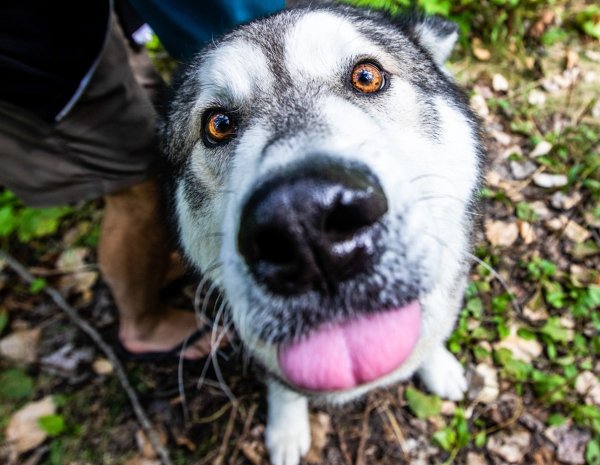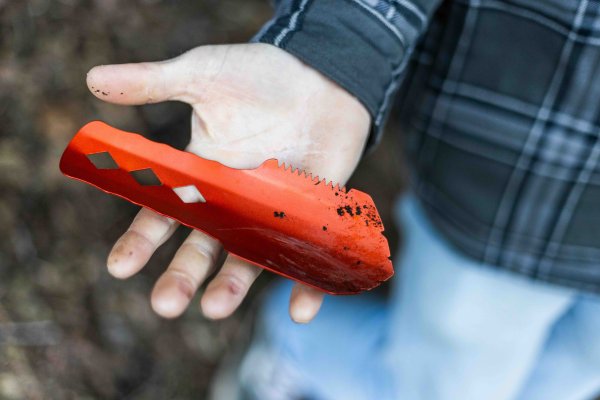Guest Post: Hailey Elise

Alright, folks, let's cut straight to the chase. We're here to talk about a topic that's as uncomfortable as a silence that went on too long: human waste in the wild. Yeah, we know, it's not exactly a cocktail party conversation, but guess what? It's a problem, and it's time we aired it out like a sleeping bag on a sunny day.
Picture this: you're out in the wilderness, soaking in the serenity, communing with nature, and then bam! You stumble upon a pile of, let's say, unclaimed treasures left behind by someone who clearly missed the memo on proper waste disposal. Suddenly, that pristine landscape doesn't seem so picturesque anymore, does it?
We can all agree that improperly disposing of human waste isn't just gross and an inconvenience; it can be downright harmful to us, the environment, and those that inhabit it.
So, why should you care?
Well, for starters, it's not just us humans who suffer the consequences of our, ahem, negligence. Our furry friends and the critters that call the wilderness home are also impacted. Imagine you're a woodland creature minding your own business when suddenly you stumble upon a stinky surprise. Might seem like a gourmet meal at first, but human waste carries harmful strains of bacteria as well as residual traces of drugs and food that may prove dangerous. Not exactly a forest grey poupon.

Dogs and their love for human feces
An additional, and rather peculiar behaviour, that some of our beloved canine companions seem to have a penchant for: rolling in human waste. Yes, you heard that right. You let your dog off for a woodland romp and they emerge smelling like yesterday's lunch from the local fast-food joint dumpster. It's not just a quirky habit; science has yet to confirm exactly why but it’s either camouflage or a terrible perfume choice. Dogs have an incredibly keen sense of smell, and to them, rolling in strong scents like human waste could serve as a way to mask their own scent or, they may simply think they smell like a new scent from Calvin Klein. So, the next time you catch Fido in the act, don't be too quick to scold. After all, it's just their way of blending into the wild or a warm olfactory embrace, albeit a pungent one.

Let’s not forget about the waterways
You know, those babbling brooks and pristine rivers that we rely on for drinking, fishing, and, dare we say, frolicking? Turns out, when you let your waste run wild, you're not just polluting the environment; you're putting your own health at risk. Ever heard of the Mamquam River in Squamish? Yeah, it's got more warning signs than a haunted house, all thanks to our collective inability to clean up after ourselves.
But fear not, fellow adventurers, for there is a light at the end of this rather stinky tunnel. It's called education, awareness, and a healthy dose of common sense. Here are a few tips on how to be a good outdoor enthusiast and leave the wilderness better than you found it.

Polite Pooping 101
First off, let's talk about best practices. When nature calls, don't just drop your drawers and do your business wherever the mood strikes. Instead, follow the golden rule of outdoor pooping: dig a hole. Yep, it's that simple. Grab a trusty shovel or trowel and dig yourself a cathole at least 15-20 cm (6-8 in.) deep. This will help prevent water contamination, reduce the spread of disease, preserve the area for all and support waste decomposition. Bonus points if you're able to do your business at least 60 m (200 ft.) away from any water source. And, don’t forget to pack out your used toilet paper.
Now, we get it, not everyone's a fan of digging holes in the great outdoors. That's where portable toilets and waste bags come in handy. These nifty little contraptions are a godsend for those who prefer a more civilized approach to answering nature's call. Just remember to pack out what you pack in and dispose of your waste properly.
And while we’re at it, let's talk about those fancy toilets you find at campsites and trailheads. Yeah, they're convenient, but they're not a catch-all solution for your waste disposal needs. Most of these toilets rely on a delicate balance of chemicals and bacteria to break down waste, and dumping anything other than toilet paper down the bowl can upset that balance faster than you can say "eww."

So, what's the bottom line here?
It's simple, really. Know your impacts and be part of the solution. Take the time to educate yourself on proper waste disposal techniques, pack out what you pack in, and above all, Leave No Trace. In fact, 'Dispose of Waste Properly' is one of the 7 Principles of Leave No Trace. Because when it comes to preserving wilderness for future generations, every little bit counts.
Next time you're out on the trail and nature calls, remember: be smart, be responsible, and for the love of all things wild and wonderful, #DontLoveItToDeath.
And with that, happy trails, fellow adventurers. May your journeys be filled with wonder, beauty, fiber, and just the right amount of toilet humour.
Essential Resources
General
- BC AdventureSmart
- BC Parks - Homepage
- CWSAA - Alpine Responsibility Code
- BC Parks - Responsible Recreation
- Hello BC - How to Travel Safely & Responsibly
- Indigenous Tourism BC - How to Travel Responsibly
- Leave No Trace
- Outdoor Recreation Council of BC - Recreate Responsibly
- Recycle BC - Pack Lean Leave Clean
- RecycleBC - Pack Lean Leave Clean - Toolkit
- Wilderness Tourism BC - ExploreWildBC Pledge
- BC Parks - KBYG Toilet Edition
- BCSARA - Outdoor Education
- Invasive Species Council of BC - Play Your Part
- Tourism Squamish - Responsible Recreation
- Tourism Whistler - Responsible Travel
- Vancouver North Shore - Know Before You Go
- Fire & Ice Aspiring Geopark
- Átl'ka7tsem/Howe Sound Biosphere
- Adventure Hub - BC Search & Rescue Association
- AdventureSmart Trip Planning App
- BC Wildfire Service App
Camping
- Camper's Code
- WildSafeBC - Bare Campsite Program
- Outdoor Recreation Council of BC - Recreate Responsibly
- BC Parks - Stay Safe in Bear Country
- BC Parks - Campfire Bans & Safety
- BC Parks - Backcountry Visitor Guide
- BC Gov - Know the Rules for Rec Sites & Trails
- BCSARA - Outdoor Education
- Invasive Species Council of BC - Campers
- AdventureSmart Trip Planning App
Fishing
Hiking
- BC AdventureSmart
- CWSAA - Alpine Responsibility Code
- Outdoor Recreation Council of BC - Recreate Responsibly
- BC Parks - Backcountry Visitor Guide
- BC Gov - Know the Rules for Rec Sites & Trails
- BCSARA - Outdoor Education
- Invasive Species Council of BC - Play Clean for Hikers
- AdventureSmart Trip Planning App
Mountain Biking
- Mountain Bike BC - Ride Respectfully
- Outdoor Recreation Council of BC - Recreate Responsibly
- BC Parks - Backcountry Visitor Guide
- BC Gov - Know the Rules for Rec Sites & Trails
- BCSARA - Outdoor Education
- Invasive Species Council of BC - Mountain Bikers
- Pemberton Off-Road Cycling Association
- Squamish Off-Road Cycling Association
- Whistler Off-Road Cycling Association
- North Shore Mountain Bike Association
- AdventureSmart Trip Planning App
Related Impacts

1 Garbage And Human Waste
The improper disposal of human waste and garbage is harmful to humans, the environment, and wildlife.
- Face masks collected by Vancouver plogger David Papineau
- 40,000
- Kilograms of trash removed by Divers for Cleaner Lakes and Oceans since 2013
- 29,188

4 Lack of Respect - People & Environment
From trampling on trails to human-caused wildfires, disrespectful behaviour is creating conflict between user groups and damage to the environment and communities.
- Percentage of human-caused wildfires in BC, down from 42% in 2023.
- 30%

5 Trespassing & Disrespectful Use
Disrespect for sensitive ecosystems, Indigenous land, cultural sites, and private property, is hurting communities, wildlife and the environment